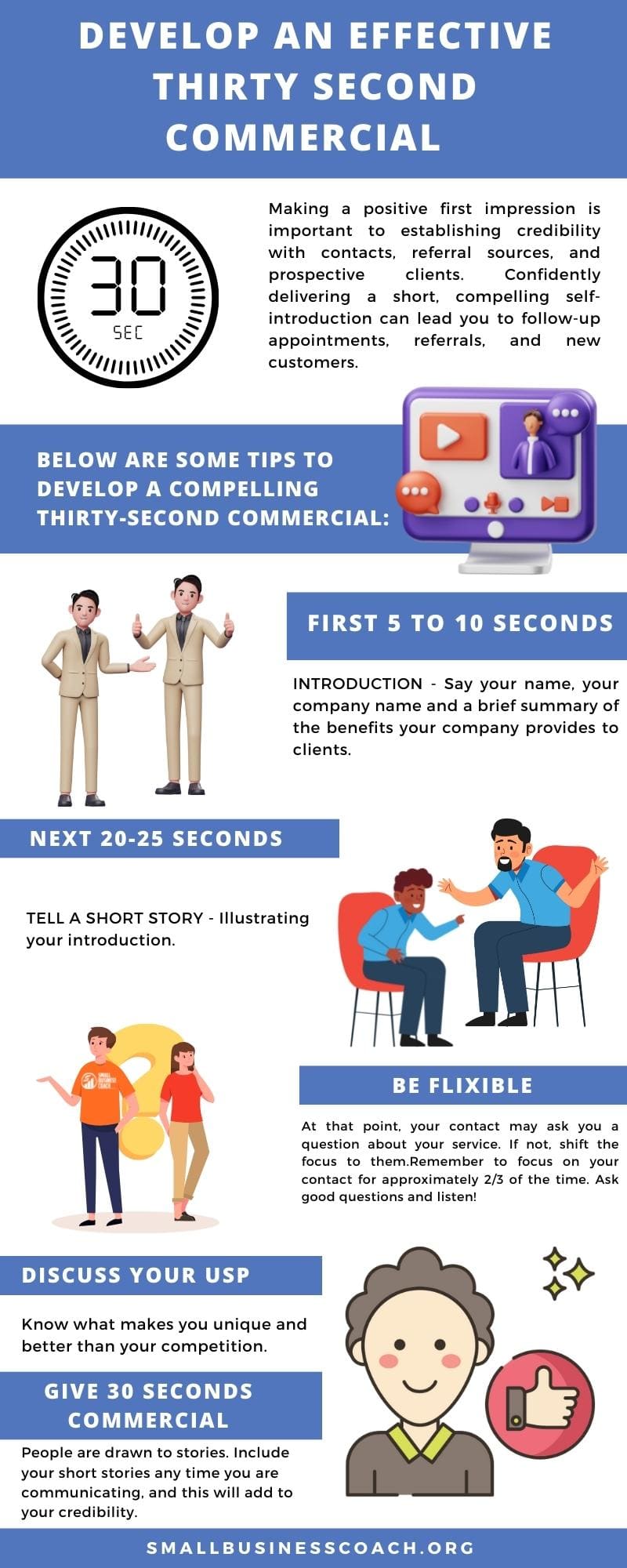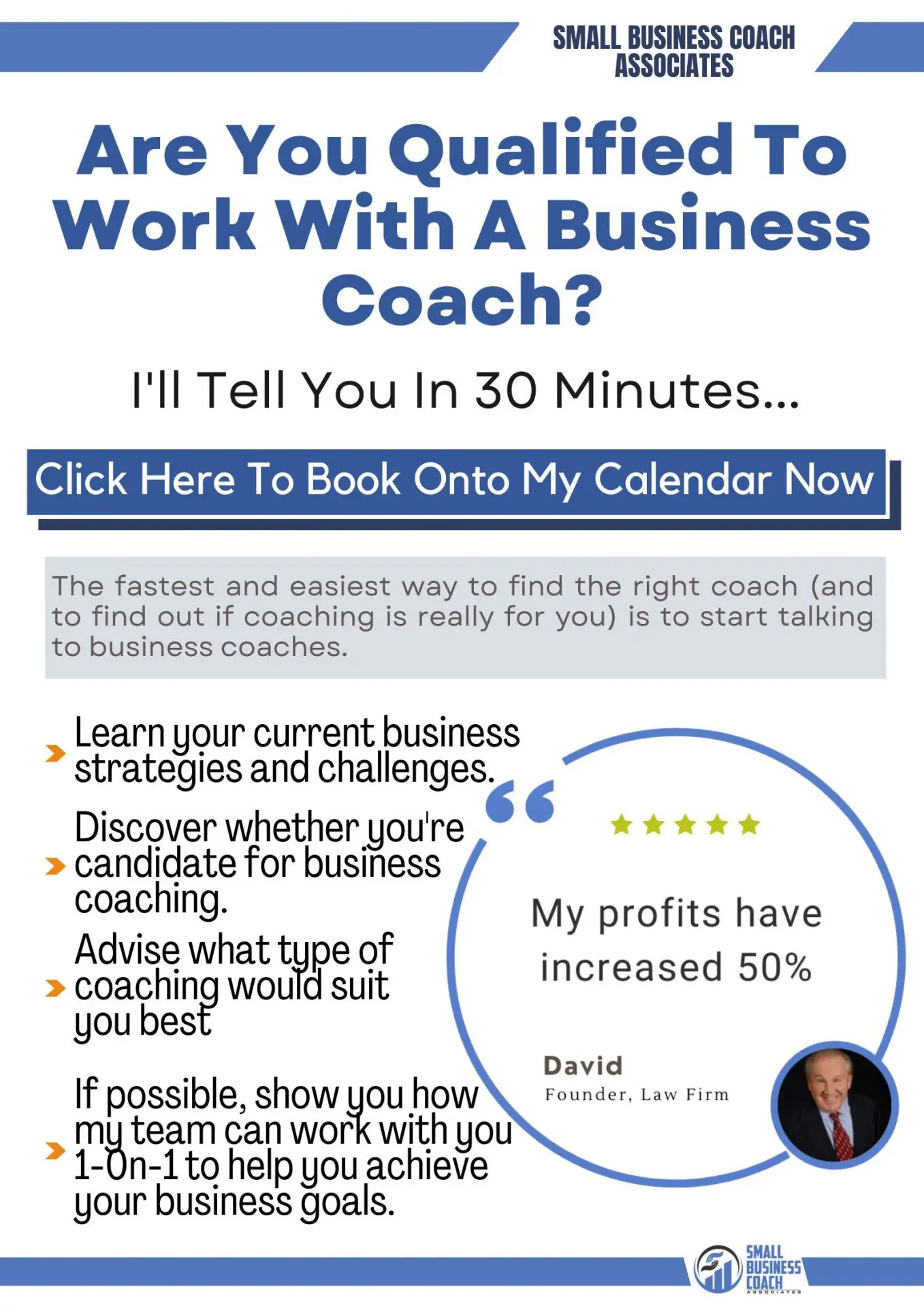If you’re a Baby Boomer, you might know the title reference to a 1960’s movie. The story centers on an ambitious young man, J. Pierpont Finch, who reads a book about how to succeed in business and uses it to rise at a dizzying pace from mailroom to executive suite. (More recently, it was adapted into two Broadway musicals, one starring Nick Jonas and the other with Daniel Ratcliffe.)
This is our take – without the romance, drama, and musical numbers – on the things that might make it easier to succeed in business.
How to Succeed in Business Without Really Trying
Stay open to trying a new approach or considering a worthwhile suggestion, and go further than you expected to succeed in business without really trying hard.
Choosing Your Small Business
If you’re 100% sure that you want to start your own business, but not 100% sure of what business you’ll choose, then we’ve got some suggestions for how you can succeed in business with minimal agony.
Loving The Business You Start
For those starting out, the best advice for an easier path to succeed in business is to do what you love … or at least enjoy a lot. Maybe you’d adore making a living by creating art sculptures, recycling furniture, or running an animal rescue. Maybe you yearn to start a business doing landscaping, graphic design, or blacksmithing.
From the following story, it’s not hard to understand how much more successful you can be if you really love your work.
It’s also about feeling real passion for an occupation. After years of the corporate grind, many people want to create a business to help others – which could center around specialties like counseling, environmental conservation, or coaching.
Here’s a story about how a passion became a path to succeed in business.
Paul Tima of Solutions-4-You – Industry: health & wellness products.
Along with his wife Cheryl, Paul sells natural personal care items, vitamins, and organic foods. Their business sprang up from years of research which disclosed how commonly used household products and foods are poisoning us “one cell at a time.” Their long quest began after Cheryl contracted scoliosis (which causes the spine to “collapse”). As they learned more, Paul was shocked by the fact that 85% of their household articles (from soap & makeup to cleansers & sprays) contained carcinogenic ingredients. He felt as if “God was hitting me on the head” to do something about it.
This all turned Paul into a man with an intense passion for educating folks about the damaging effects of common household goods on our health, and for providing new and time‑tested natural therapies, food, and household products that puts prevention before prescriptions.
“We still need our medical community of nurses and doctors,” he says, but we also need “to understand the body and how to take care of it.” We should make a choice to know what’s in the products we eat, drink, inhale, and use on our skin, and what it’s doing to us.
Take Advantage of Neglected Business Markets
One way to succeed in business without really trying is to choose a business without a lot of competition. Are there no acupuncturists in your town? Very few event planners? Not enough DJ’s, nutritionists, or life coaches? Is your area lacking an upscale restaurant, dance studio, delicatessen, or winery? Improve your chances of success by providing a business that’s in demand but lacking in your community.
To succeed in business you could consider offering a less common service:
- Concierge for high-end clients. Executives, politicians, and TV stars don’t want to waste their time or energy on tasks like lining up concert tickets, finding handymen and contractors, or making reservations for a weekend getaway. There are 10.8 million U.S. millionaires out there who could be your next client.
- Providing expert witness services for legal cases. Maybe you have skills that a lawyer might want in court – like a physician, security pro, or forensic scientist. You could also be a broker of expert witnesses – locally, nationally, or globally.
- Services for seniors. As the Baby Boomer generation (born 1944-1964) ages, there is high demand for in-home companions and care providers. This group of 76 million Americans is also seeking an assortment of services to navigate:
- Medicare, Social Security, Veteran Benefits, Long-Term Care
- HHHousing, Downsizing, Reverse Mortgages
- Legal Help (will, power-of-attorney, medical directive)
What Businesses Are in Demand?
Alternatively, consider providing products or services that are new or emerging. Changes in technology, lifestyles, and our stress levels are constant. We’re listing a few industries that seem ripe for the pickin’. If these aren’t just right for you, let it be a jumping board to discern what fits you in particular.
- CBD or Hemp Oil. Become an online distributor of health-related trends. These oils are free of THC (the hallucinogenic stuff) and have become very popular.
- Everything pet-related. When I heard a co-worker say she was building a $30,000 sunroom just for her four cats, I was shocked and dumbfounded. I then heard about a nearby restaurant just for dogs. Fido can play with his new buddies on Astroturf and have a doggie birthday party. Amazingly, I read that owners spent $69 million on their pets in 2017.
This industry is open for pet sitters, walkers, and trainers. You can start a mobile pet grooming business or a doggie daycare. Or, start your own pet bar.
- Tiny houses. There’s a growing trend toward downsizing and living more simply. From singles to retirees to young millennial families, people are choosing to move from their large suburban homes into a 300-square-foot tiny home on an 8-foot wide trailer. They not only want to reduce their “footprint,” but also have the flexibility to move when and where they’d like.
- Selling alternative energy sources. Solar, wind, bio-fuel, photovoltaic, geothermal. As research, technology, and costs make environmental-friendly energy more attractive, business- and homeowners are wanting to become more “green.” Opportunities can be found in design, sales, distribution, repair, installation, and maintenance.
- Personal coaching. This field has boomed in recent years due to society’s increasing struggles like divorce, layoffs, stress, and addiction. People are also looking for answers in the areas of spirituality, health, relationships, and self-improvement. Life coaches, business coaches, and marital coaches are needed to fill the demand.
- Healthy fast food. Quinoa, free-range chicken, tailored juices, and tofu burgers. It’s a thing. The calorie-rich burger, fries, and soda just aren’t cutting it for everyone. Not only do we feel guilty eating that kind of food, but our waistlines grow proportionately with each happy meal. You could open a drive-thru restaurant, operate a food truck, or become a personal chef.
- Virtual assistants. Every year, more people go into business for themselves. The owner may have a great product or service, but they need help with the office work:
- logging appointments and checking email
- finding suppliers, contractors, or vendors
- making or fielding calls
- ordering goods and equipment
- tracking data like invoices, customer information, or budgets
This is an attractive option for a work-at-home business.
- Software developers. According to the U.S. Bureau of Labor Statistics, the demand for software developers is expected to increase by 17% each year through 2023. The median pay in 2017 was slightly over $100,000 per year.
- Skilled trades. Masons, electricians, plumbers, and carpenters are recession-proof jobs. A significant portion (40%) of current tradesmen will retire in the next few years, so this field will be open.
Pressing the Easy Button In Your Business
There are other easy ways that your business can be a joy rather than a job.
Using Your Business Network
A great way to succeed in business without really trying is by leveraging your network of friends, business contacts, family, relatives, clubs, and other alliances. Connect with neighbors, social media lists, and former co-workers.
Build a community of support, word-of-mouth, and referrals through people you already know. Send them emails and social media posts to forward on to their network. Give them business cards and brochures to share. Sweeten the pot by offering discounts or gift cards when they refer someone who becomes a client.
Make a point of talking to members of groups you’ve joined such as clubs, associations, networking groups, masterminds, or meetups. Ask the group host if you can set up a table in the back of the room, or give a 5-minute pitch. Offer a free showcase event, e-book, or video about what you do and how it benefits the audience.
You can expand your network by joining a trade group like a barter exchange. Members provide products and services to each other cash-free. The work you perform for other members accrues credit to purchase services within the exchange. You not only save on expenses for services like website design, coaching, and marketing, but you also are now a part of a strategic community.
Apply Your Business Talents & Gifts
Instead of setting up a business just to rake in the cash, consider following your calling instead.
Are you artistic and creative? Then you can start a graphics design shop, photography studio, or art gallery. These pursuits may certainly make you money, but you’re using your artsy talents and fulfilling a dream.
Do you hate clutter? The world is looking for organizers to help purge, sell, donate, and re‑organize the things accumulated over the years.
Are you someone who loves to write? So many people need help to make their content clear, well-organized, useful, and compelling – from blogs and web copy to magazine articles and books.
Settling for a high-paying job might bring in a healthy paycheck, but may make you feel as if you sold out. You know what you were really meant to do.
Follow your intrinsic talents. A business won’t be hard work if you do something that comes naturally.
Become the Business Go-To Person
If you prove yourself as the reigning expert in your field, then to succeed in business will come easier. Our suggestions for establishing yourself as the guru for any particular job:
- Do one job. A lot of entrepreneurs have many talents, but if you want to be that go-to person who known for one niche then stick to just that. You may be renowned as a business coach but can also do website design … keep that secondary skill under your hat because that can confuse your client and muddle your message.
- Develop deep knowledge. Read books, take webinars, attend classes, and practice. Knowing your business exceedingly well will cast your reputation as the go-to person in your field.
- Define your unique selling proposition. Take time to flesh out what makes your business stand out from the competition. Tell the story of how your company is different or better. These questions might help:
- What customer problems are we solving and how do we do it better?
- How do we compare to the competition – faster turnaround? guaranteed one-day service?
- What do clients say is best about what we do or provide?
- What are our distinguishing qualities – customization? open 24/7? American-made?
(Read the related blog about USPs on our website.)
- Publish. Write a book, blog, or post around your area of expertise. Find the right magazines, newspapers, or trade publications, and submit related articles. Keep the content appropriate and relevant for your intended audience. (Note: Make sure to have it edited; nothing kills credibility like typos and mediocre writing.)
Starting a business can be exciting and heady at the start, but can be a tougher path to follow than expected. You can succeed in business without really trying by doing something you love, know thoroughly, or that which comes naturally. It will also help to use your existing connections, to choose a market that’s in demand, and to establish yourself as an expert.























